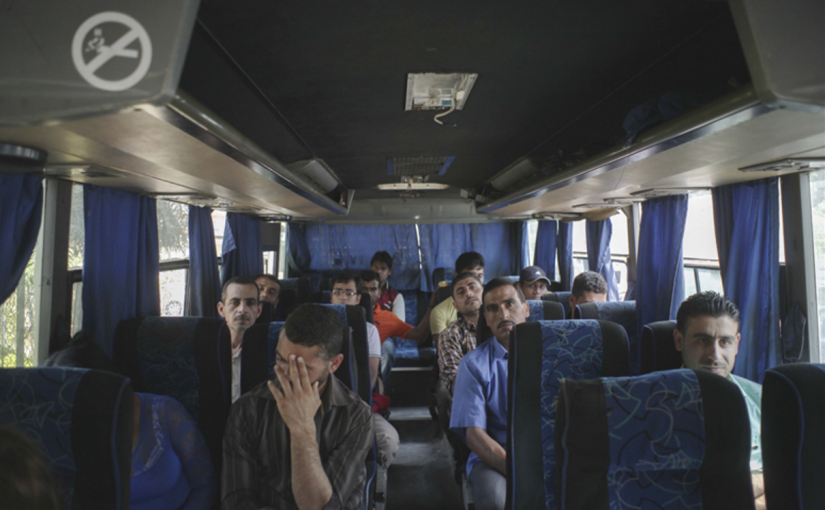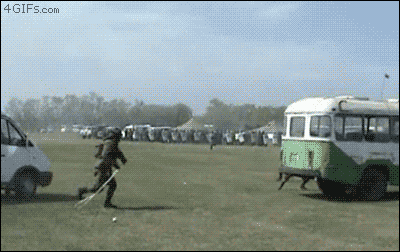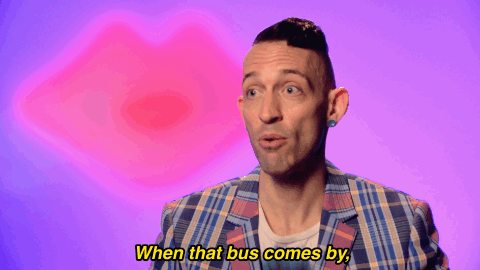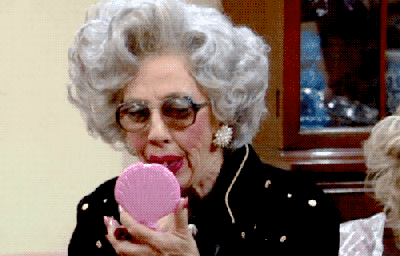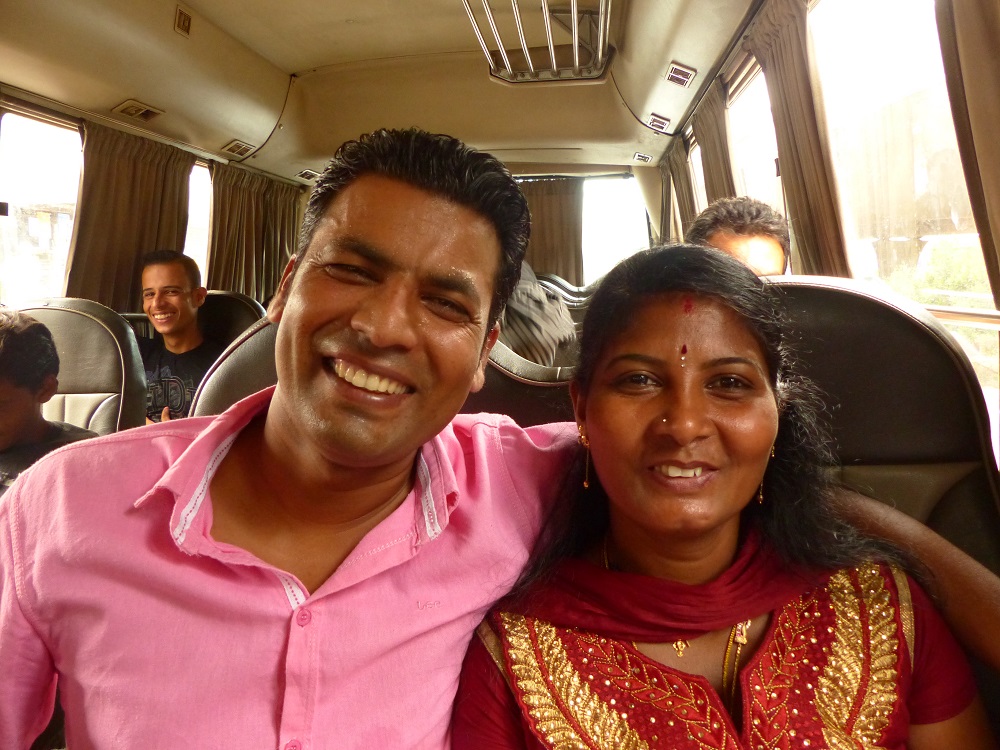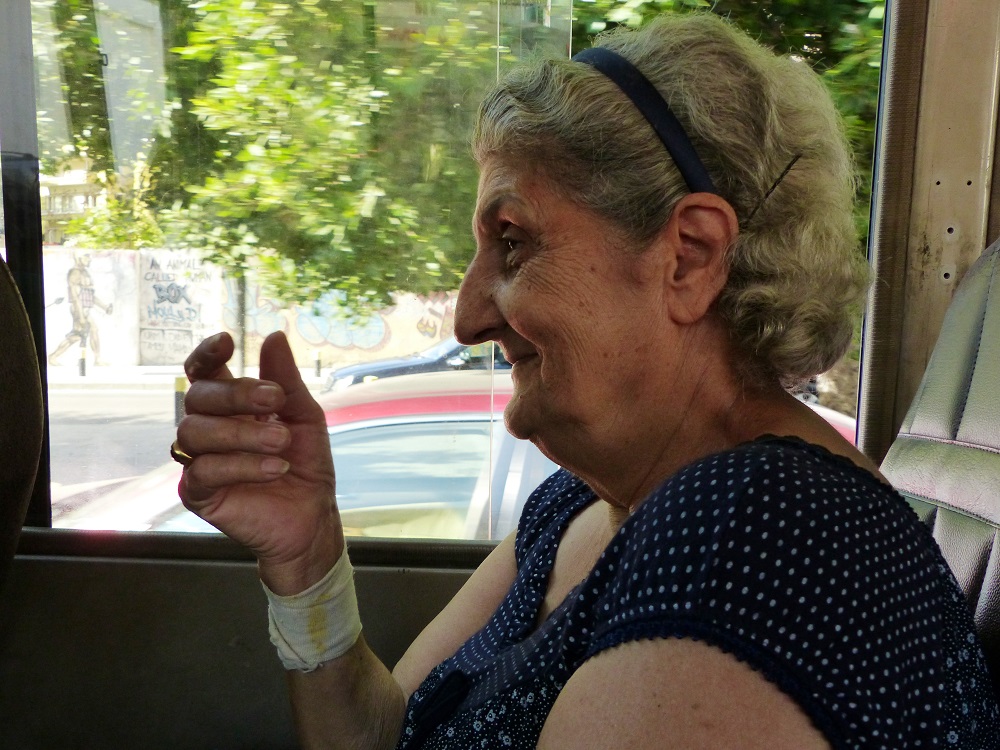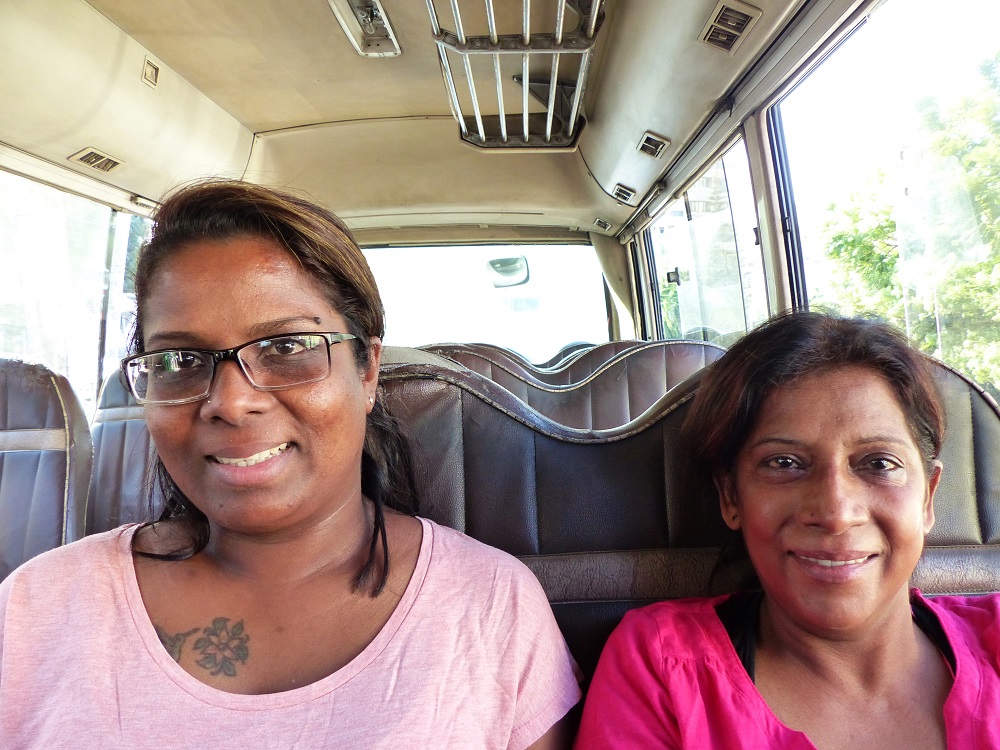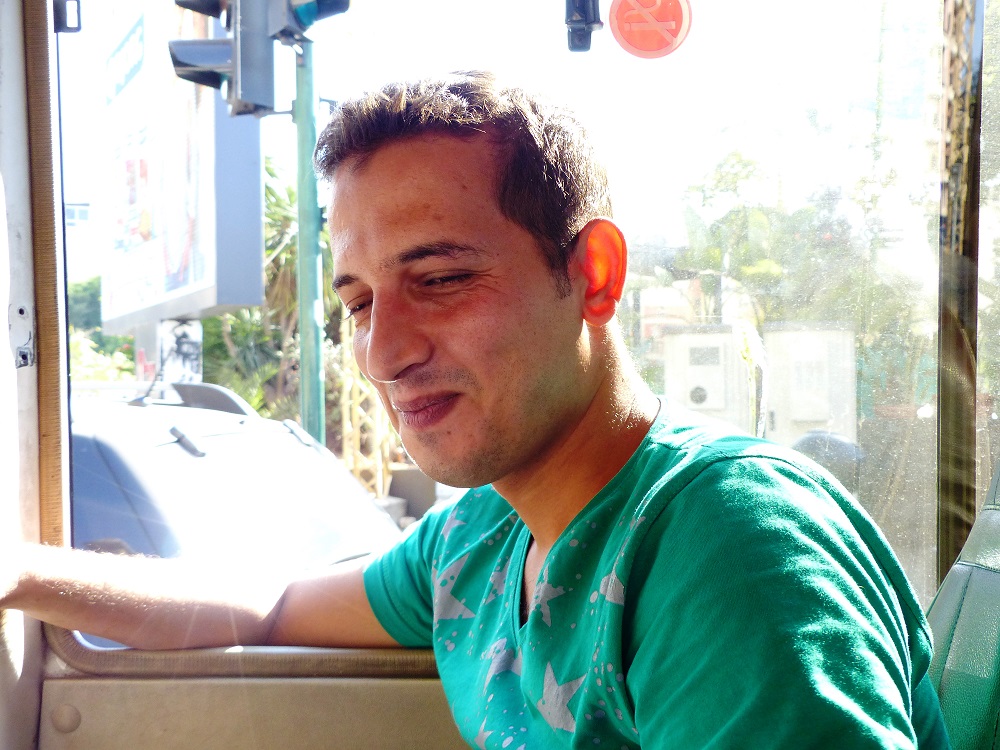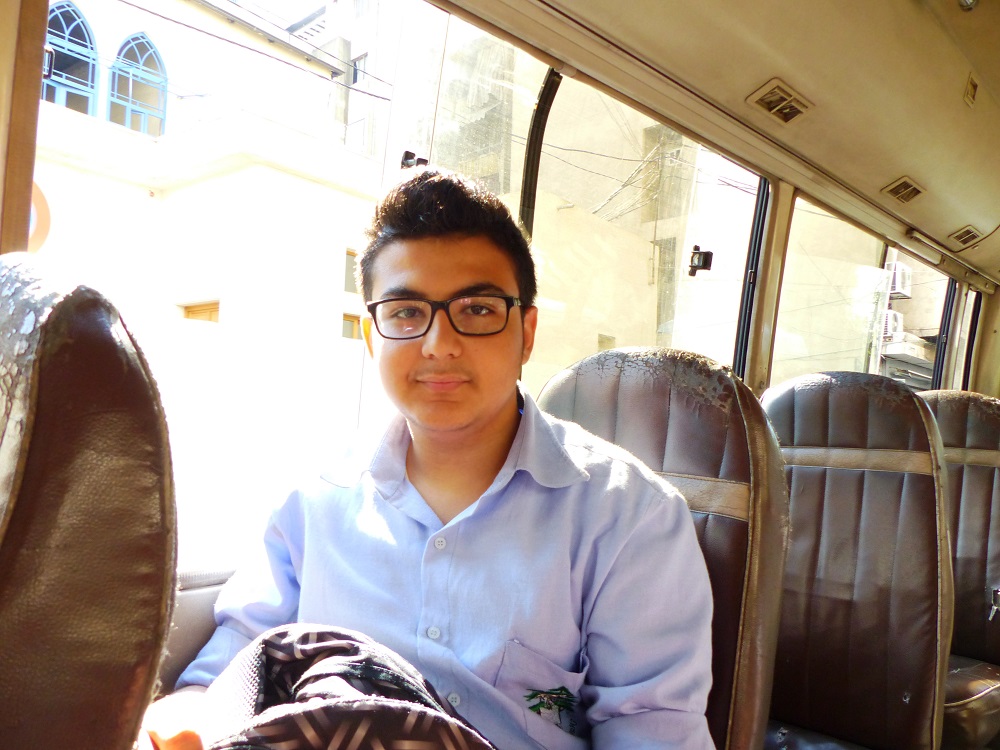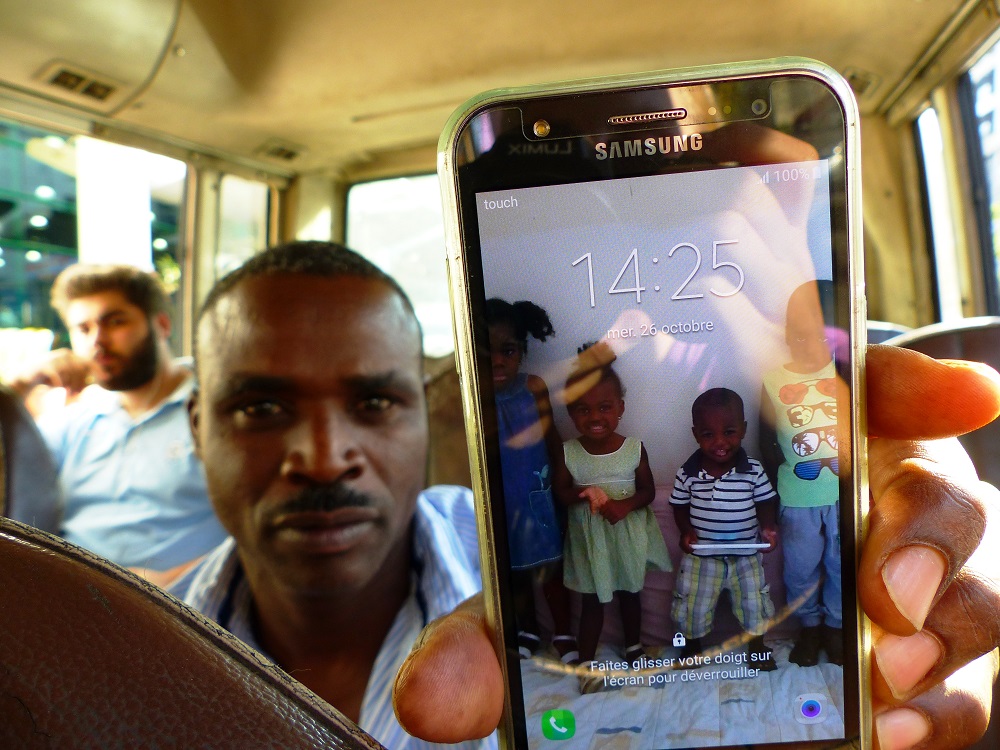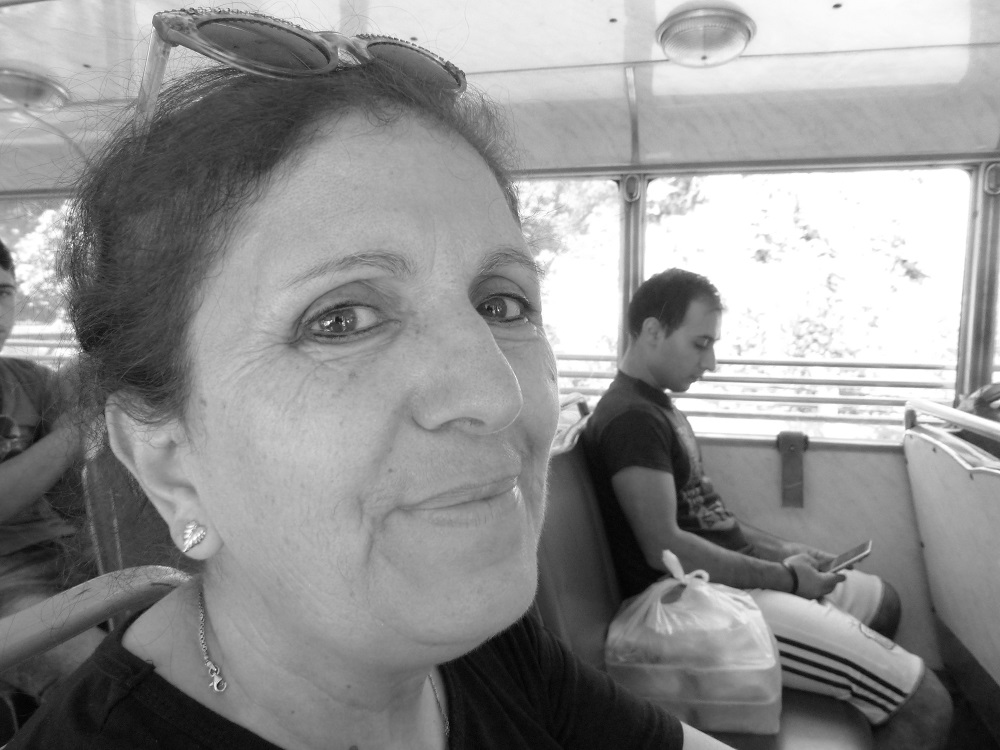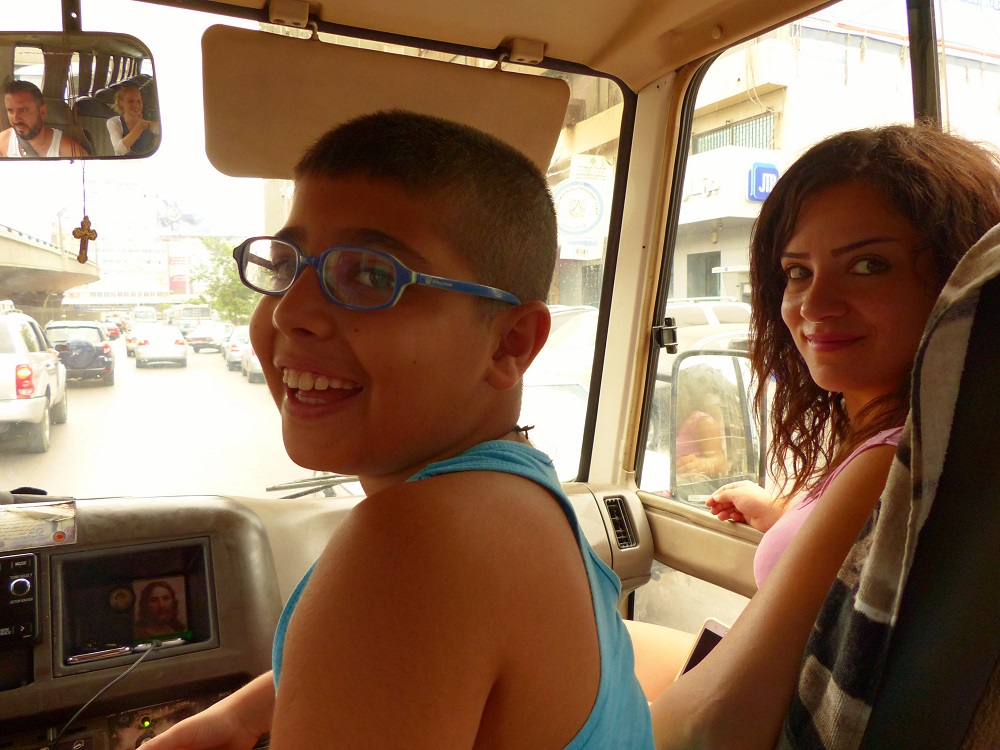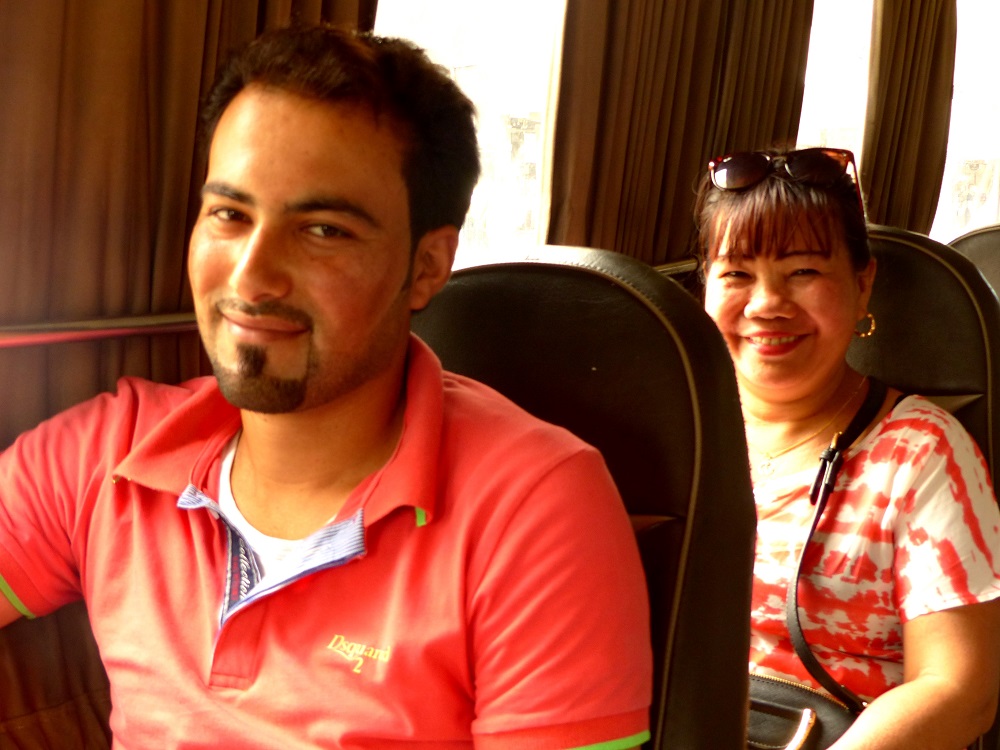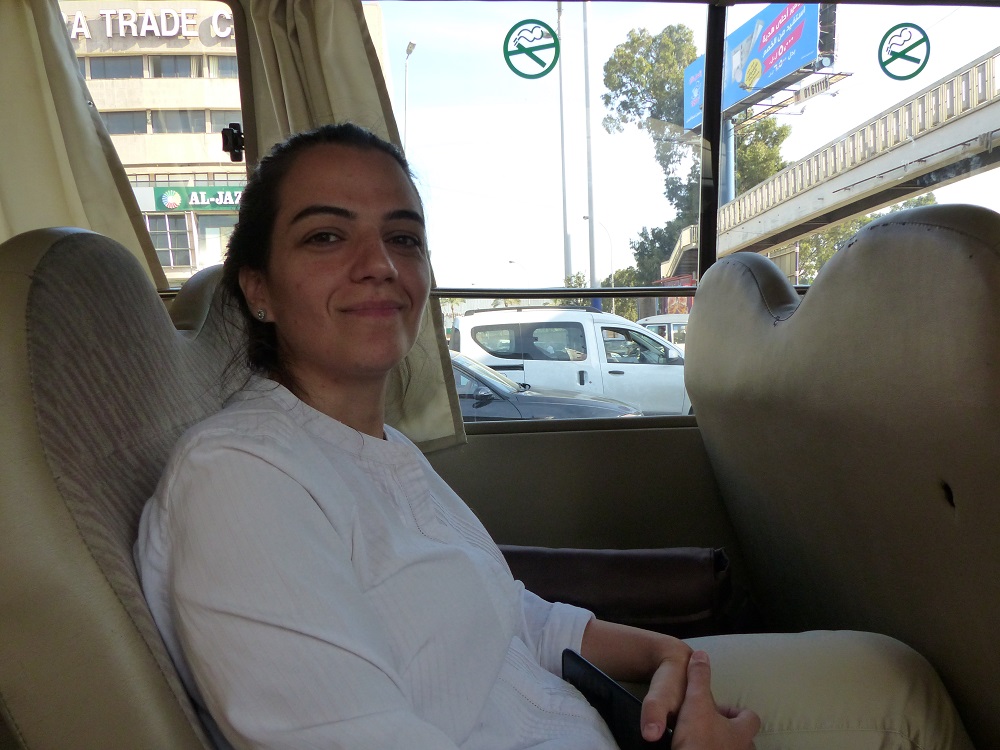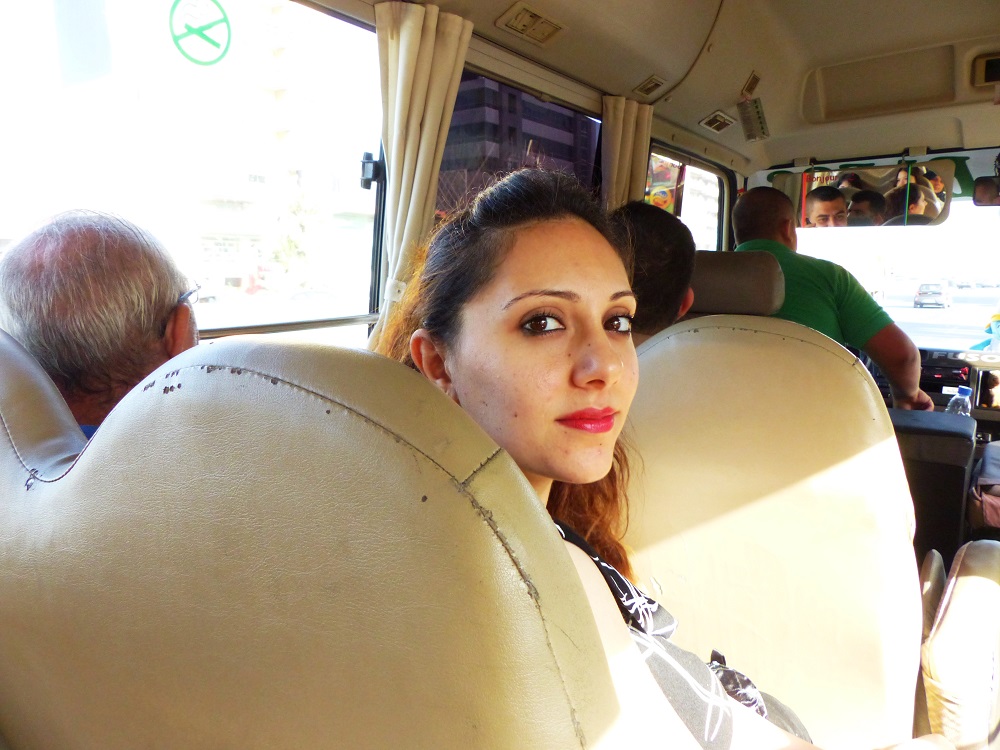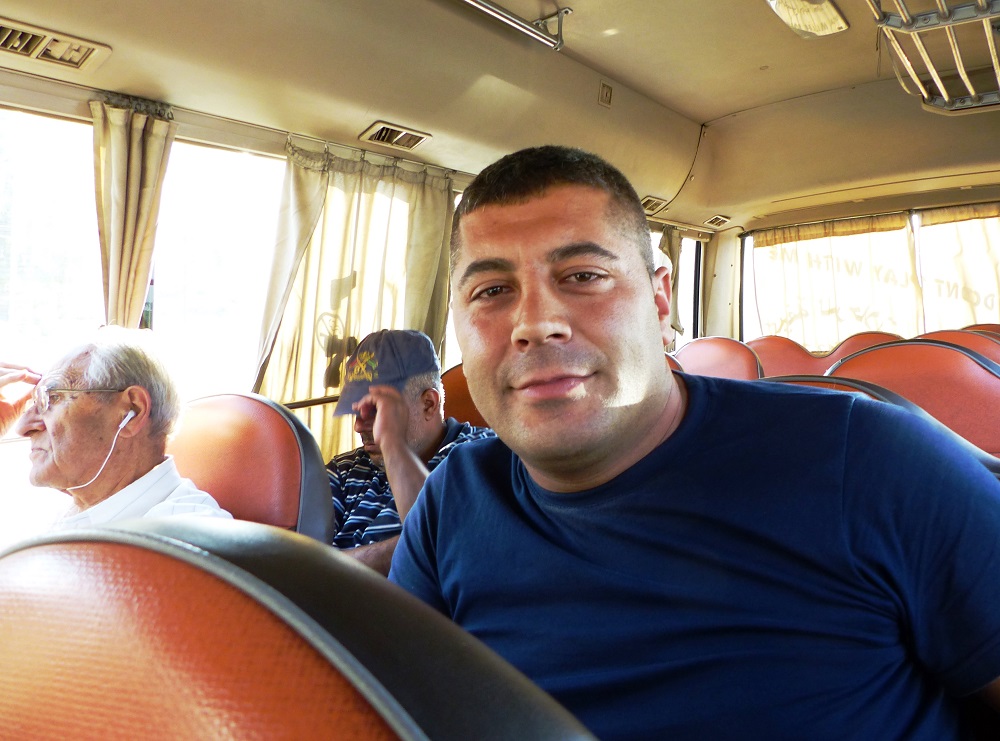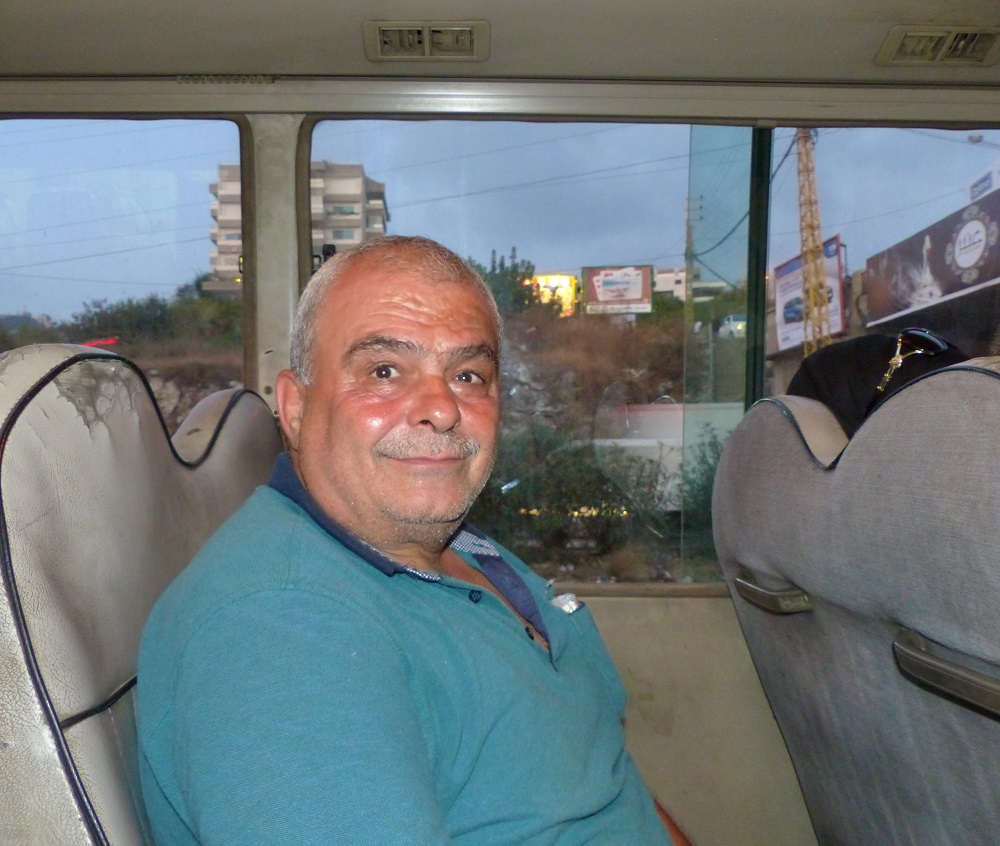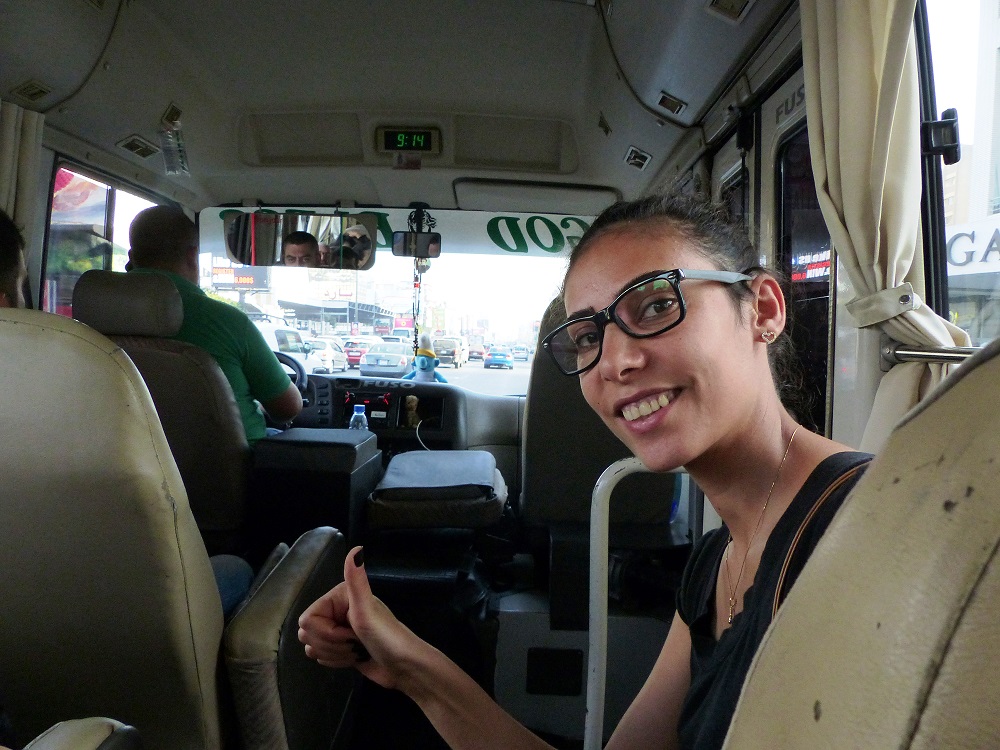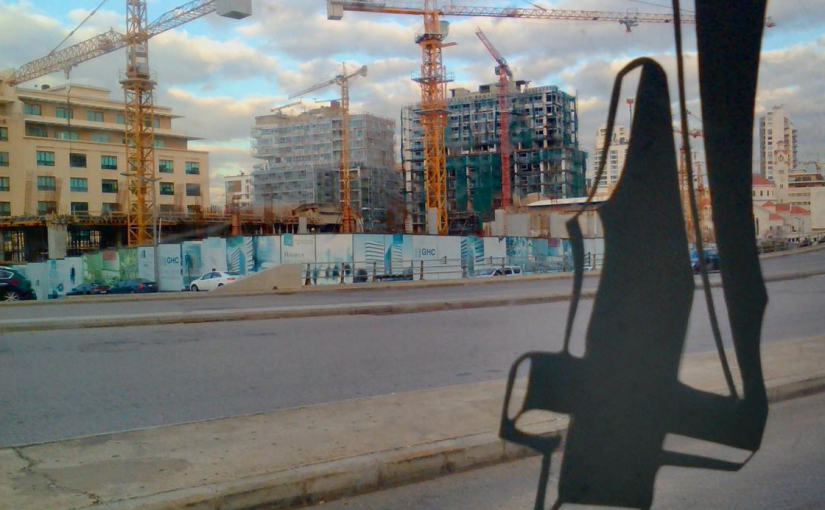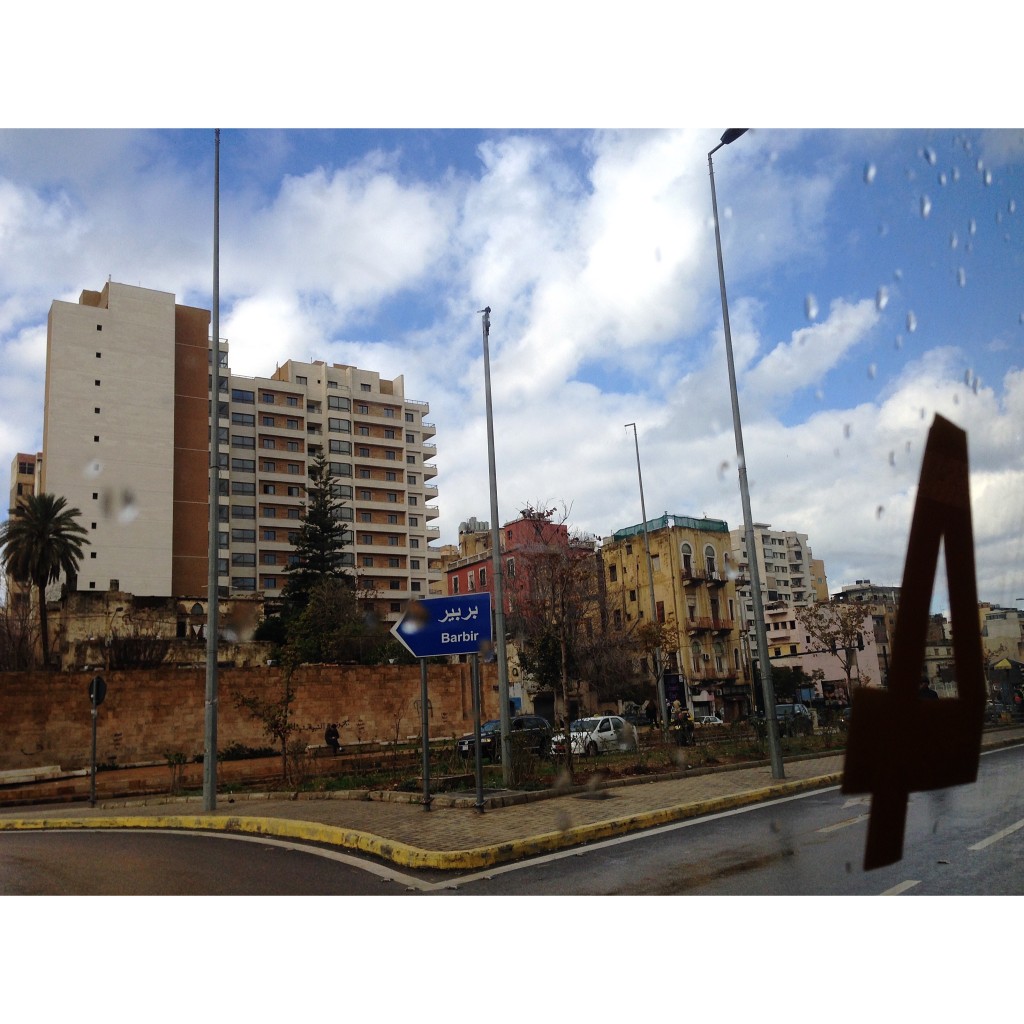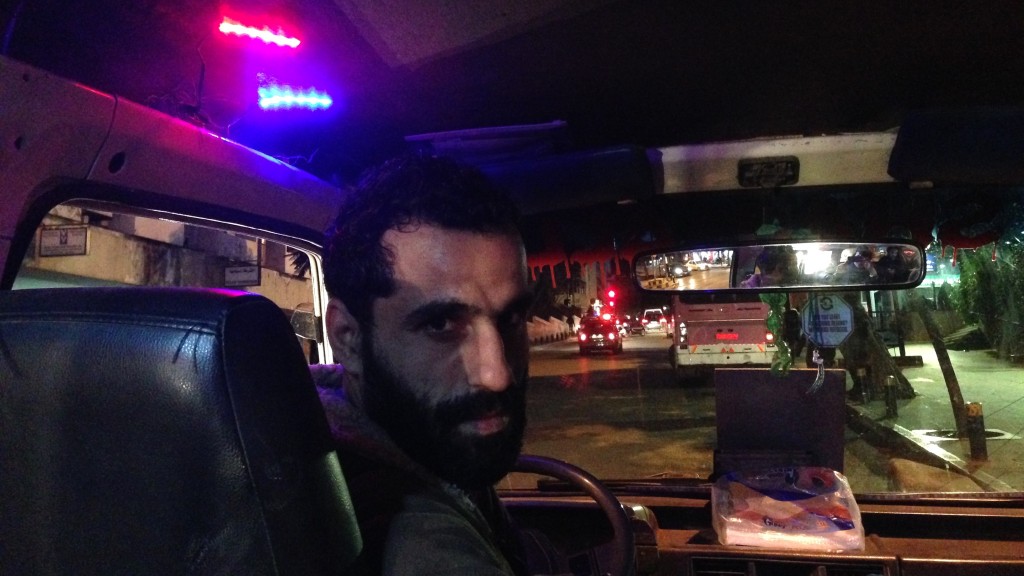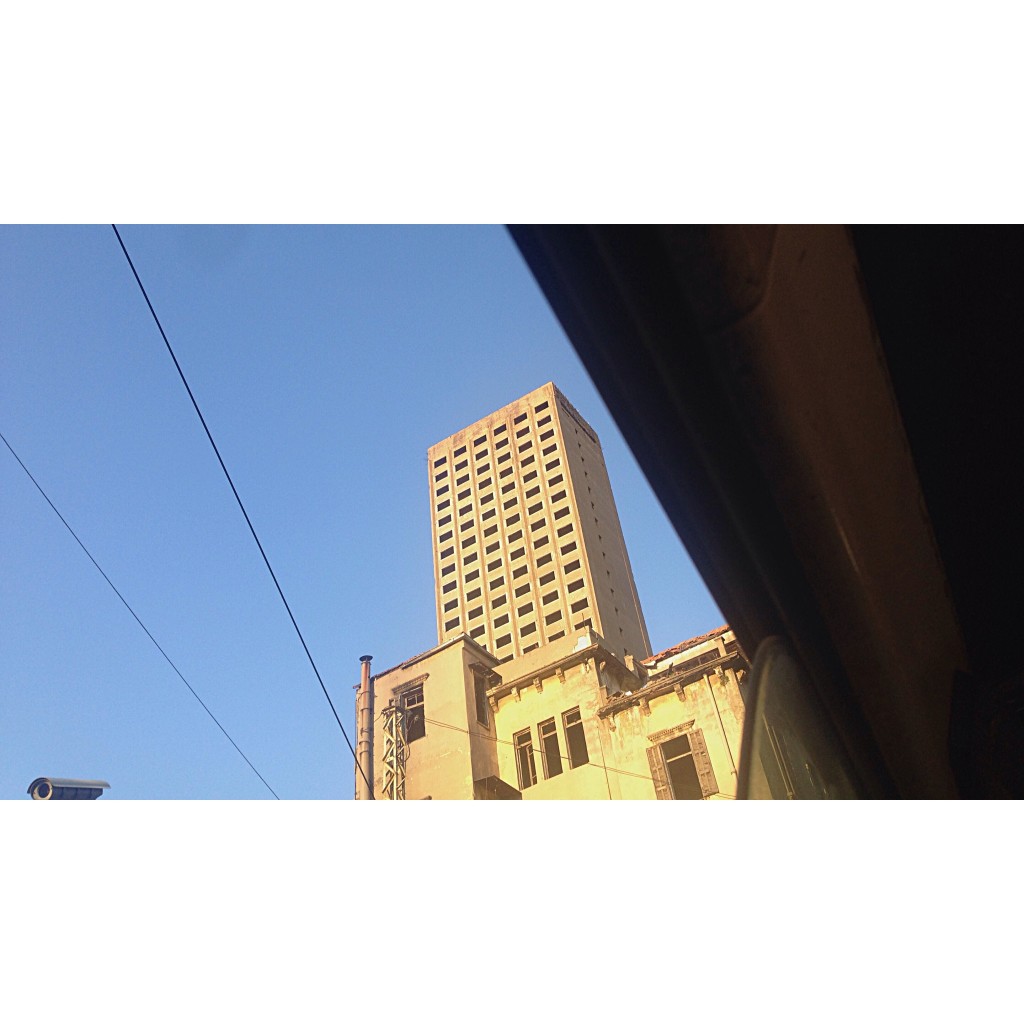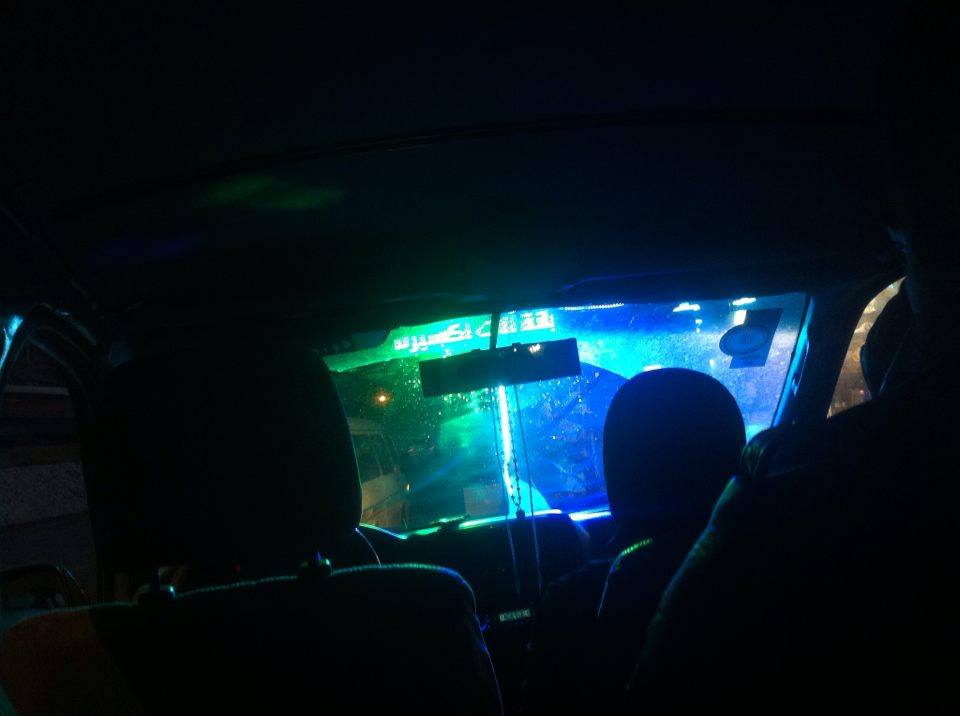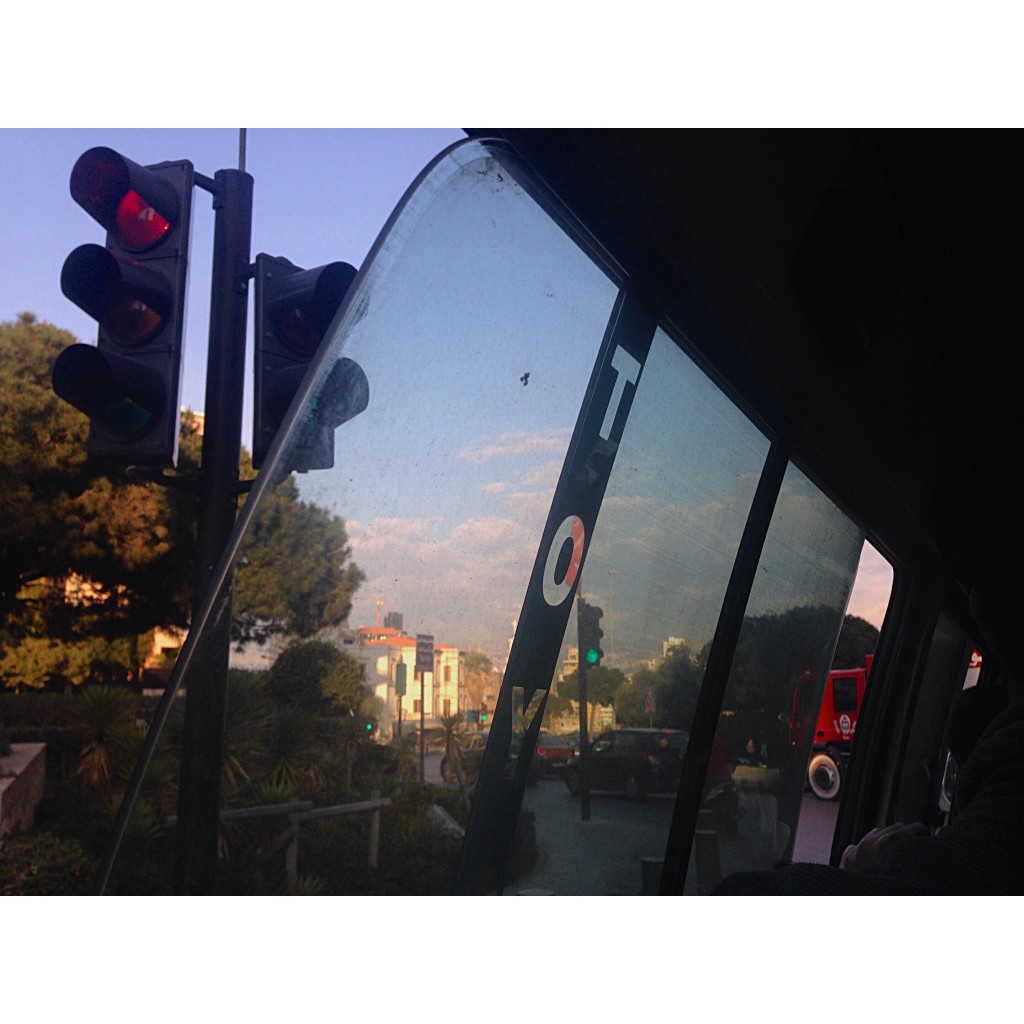As integral but somewhat underappreciated public spaces, Lebanese buses offer the city lover a rich and multi-layered slice of urban life. The bus is not only a mean of transportation: it is a place of social mixity and multi-culture that sparks conversations across class, gender and national background. Commuting in a Lebanese bus is a window to a gallery of unique and yet relatable personalities. Scroll down and let’s see how many of them you’ve already spotted! And let us know if there are any we’ve missed.
20 kinds of People You’ll Find on the Bus in Lebanon
by Mira Tfaily
1. The Old Habitué –
He knows every driver by name, remembers the time Beirut had a tram (riz’allah), and feels entrusted with a mission to convince the driver to take every shortcut possible while complaining about traffic.
2. The One That Sits Up Front –
Often mistaken for the Habitué, this guy may or may not be a regular rider. In fact, he may only get on board if that front seat next to the driver is available. An aspiring DJ, he ensures Shiraz is playing on the stereo at least 5 times every hour. A brilliant multi-tasker, he manages the money handed to the driver and turns the AC on and off every half an hour, whether the windows are still open or not.
3. The One That Sits at the Back –
He is alone, he is manspreading so wide that my teta could sit between his thighs, and he does not want to be bothered. Not to be confused with #6 (see below).
4. The One That Does Not Sit –
Usually a man, he takes pride in his chivalry and amazing balancing abilities, and will end up crushing your feet. Some day, he will convince the whole bus to start a dabke to “Jenno Notto” while going full speed through Hazmieh.
5. The AUBites –
Once difficult to spot in the wild, now often found in the legendary Van Number 4 (“it’s so in right now”), they blast their own music regardless of the dabke already playing in the bus. The driver will usually give up after ten minutes and the whole van will be bouncing over Kendrick Lamar’s new album (“Sit down. Be Humble”).
6. The Beach-Bound Teenyboppers Between Dora & Jbeil –
They sit at the back, Instagram-ing every time the bus stops, and have started drinking from their Jagger flasks at 11 am. Think that #12 and #13 are yiiiiiii, 7araaaaaam.
7. Those Two or Three European Backpackers –
They are more at ease with Lebanese public transportation that you will ever be. They have a Zawarib Guidebook in hand, comfy Birkenstocks and overstuffed backpacks that take up a whole seat, and their faces are liberally caked with sunscreen. #1 and #2 will compete over who has the best directions from the mafra2 closest to their destination.
8. The Regular 9-to-5ers (a.k.a. The “Zboun”) –
You don’t know what kind of mysterious agreement they have with the driver, but he will wait for them if they are not at their usual spot at the usual time. An elite subset of this group is the Hyper-Zboun: they are so in tune with Standard Bus Time, the whole system is thrown in disarray if they are not present at that exact spot, at that exact time.
9. The Hipster Who Carries his Skateboard in the Bus –
He does not look or talk to anyone, acts as emotionally detached as possible, but when Fares Karam comes up, he can’t help but follow the rhythm with his fingertips on the window. He’s thinking of starting a blog about bus stories.
10. The Journalist on Bus Number 16 –
Usually headed to L’Orient-le Jour and always late, she carries an unread book and speaks in French on the phone during her whole trip complaining about the noise on board. Likes self-referential narratives.
11. The One Who Doesn’t Pay –
Often a cop or a soldier, sometimes bolees baladiye, sitting alone. He is side-eyed with a mixture of admiration and curiosity by the driver and other passengers.
12. The Beauty Queen –
AKA “ghanoujet el bus,” she is wearing stilettos, she knows every driver, and she is allowed to sit wherever she wants. You do not know where she is headed, but she makes a point at approaching every woman on the bus to ask her about the reference of her lipstick or the address of her hairdresser.
13. The Beiruti Casanova –
AKA “jagal zameno,” this man is a local, and a harmless romantic that sees public transportation as a real life Tinder experiment. He will be frightened by your annoyed look and will sit alone for the rest of the ride, probably pondering about Plato’s theory of soulmates in The Symposium and other existential questions.
14. The Posh Tante –
She climbs in at Ashrafieh, wraps herself in her fur and mumbles to her massive dog Stella in French during her whole trip. Complains loudly about how slow the bus is whenever she gets a phone call.
15. The Sunday Communion of Saints –
They are all migrant domestic workers on their one day off, on their way to their diverse denominational churches, like St Francis Catholic Church in Hamra, or the Ethiopian Orthodox Church in Ain Aar. Despite their linguistic and religious backgrounds, they are united by their common experiences with the “misters” and “madams” of Lebanon, and their shared love of Dora weekend shopping. They play musical chairs and change seats at every stop, never missing a beat in their passionate conversations.
16. The Sleeper Agent –
Party-goer or work commuter, you do not know how long he has been asleep and whether you should wake him before he misses his stop. He usually emerges from his half-coma at Cola and leaves the bus swearing, before immediately taking another bus in the opposite direction.
17. The Marlboro Man –
Fidgets at every stop and thinks that sticking his cigarette outside the window is just the right amount of consideration he can offer his fellow passengers. Locked in a glaring war with the Syrian driver while pretending to not see the sixty No Smoking signs throughout the Lebanese-owned bus.
18. The Sweaty Banker –
Some say this man is a myth, but one or two bank employees have been spotted in the wild. He is wearing a suit and tie, instantly elevating the sophistication of the whole journey. Often seen sipping a tiny plastic cup of muddy coffee.
19. The Undercover Driver –
A friend of the actual driver, they exchange seats when one is tired or feels like handling the music, or when one of them doesn’t have the right paperwork.
20. The One that Pays for the Group –
He drops money likes a 90’s R&B music video and leaves the change to the driver. Dolla dolla bill y’all!
Main photo by Johnny Hchaime
